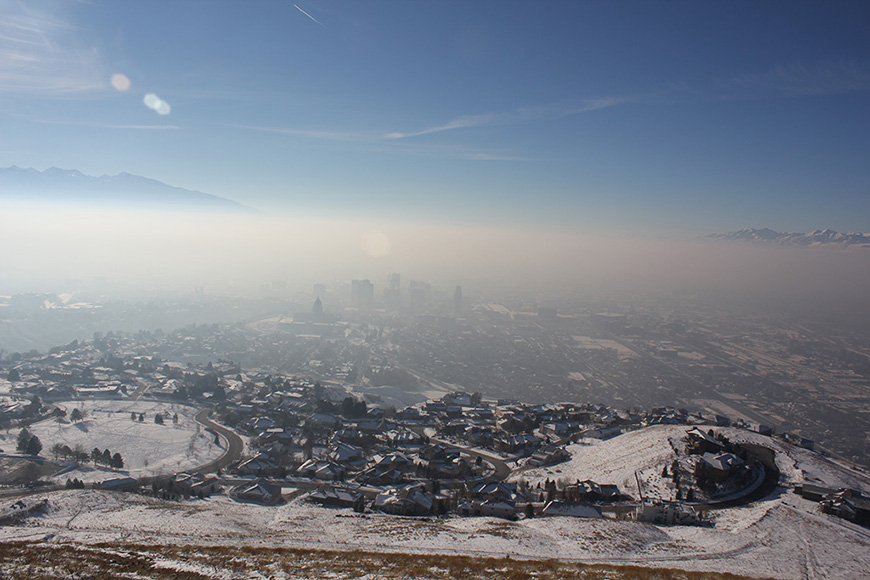By Mat Carlile

Last week’s inversion wasn’t the kind of “present” any of us wanted for the holidays. We know that fine particulates caused by the buildup of pollutants under the inversion’s “lid” create poor air quality and poses a health risk, particularly to the young, elderly, and those with respiratory and heart disease. We also know it’s important to reduce the amount we drive, use public transportation, and avoid cold starts prior to and during inversion periods. When we’re on vacation, it’s easier for us to change our driving patterns to accommodate those kind of reductions. But it can be tricky when we need to drive alone to get to work at a certain time or travel to meetings during the day. Employer-based trip reduction programs provide viable alternatives that can reduce emissions and offer employee flexibility.
On January 11, 2017, the Utah Department of Environmental Quality’s Division of Air Quality (DAQ) will host an Employer-Based Trip Reduction Symposium to demonstrate how companies can implement a variety of vehicle trip-reduction strategies in the workplace. These voluntary actions can reduce a company’s contribution to poor air quality, provide benefits to employees, and reduce company costs associated with transportation. Since vehicles are responsible for the majority of the PM2.5 and ozone in Utah, we are pleased that companies throughout the State are already taking voluntary steps to reduce their vehicle emissions. It is DAQ’s hope that this symposium will help employers identify vehicle emission-reduction strategies that work for their companies.
Employers will have a unique opportunity at the symposium to learn how leading Utah companies are using Employer-Based Trip Reduction (EBTR) strategies to improve air quality, employee satisfaction, and their bottom line. EBTR programs use a range of strategies to reduce emissions from company and employee vehicles. Strategies can include:
- Teleworking
- Teleconferencing
- Carpooling or vanpooling
- Onsite services such as daycare and dry-cleaning pickup and delivery
- Alternative work schedules
- Onsite facilities such as gyms, showers, and bike lockers
The keynote speaker will be Val Hale, executive director, Utah Governor’s Office of Economic Development (GOED). Our partner companies and agencies will also be on hand to share their strategies and the benefits their organization has realized from their trip reduction efforts. Partners include:
- Hill Air Force Base
- University of Utah
- Salt Lake City
- Utah Department of Transportation
- Kennecott
- Intermountain Health Care
- Utah Department of Environmental Quality
Come learn about EBTR and discover how your business or organization can improve air quality while improving employee health and your bottom line!
Please join us on January 11, 2017, from 8:30 a.m. to noon. The symposium is FREE! You can participate in two ways: in-person at the Multi-Agency State Office Building located at 195 North 1950 West, Room #1015, Salt Lake City, Utah, or through an online webinar.
Because space is limited, we ask that you register by tomorrow, January 4, 2017, and indicate whether you will be participating in person or through the online webinar. As the event approaches, we will send out a detailed agenda and information on how to participate via the online webinar. Questions? Please contact me mcarlile@utah.gov (385) 306-6535.
I have worked with the Utah Division of Air Quality for 11 years. I have a Master’s degree in Public Administration from Brigham Young University. My wife Carrie and I celebrated our 21st wedding anniversary in June. We have four children. I love reading, investigating history, traveling, and playing basketball, volleyball, football, and ultimate Frisbee.

